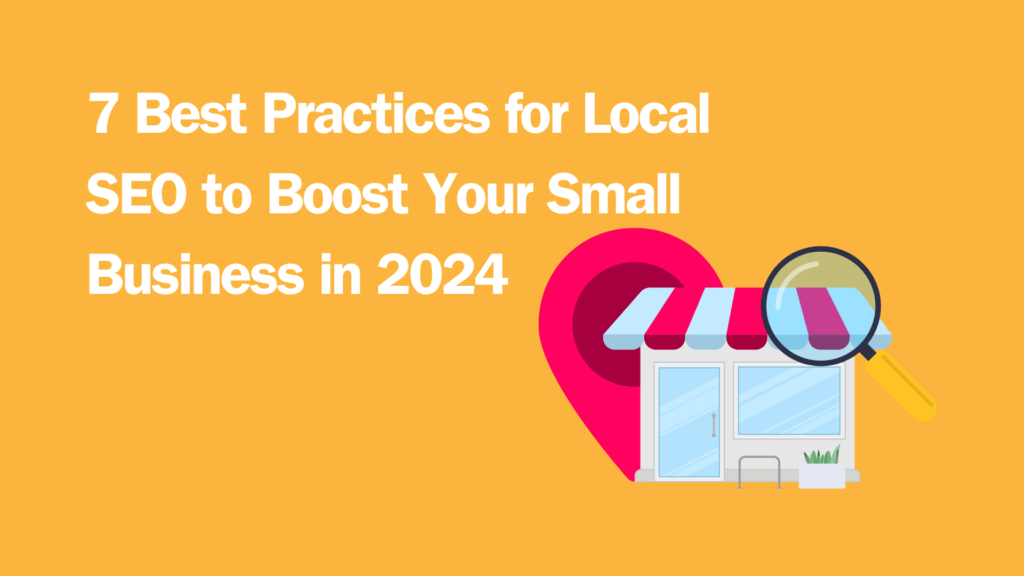
7 Best Practices for Local SEO in 2024
Local SEO is essential for any small business looking to increase its visibility in nearby searches. Whether it’s a customer looking for a restaurant or a homeowner searching for a local plumber, people rely on local search results to make decisions. Implementing the right best practices for local SEO can help your small business rank higher and attract more customers in 2024.
Let’s dive into the 7 best practices you should follow to stay competitive in local search. Experience top-notch digital marketing services with Vic Ranci and see the difference.
1. Optimize Your Google Business Profile (GBP)
Your Google Business Profile is one of the most powerful tools for local SEO. It’s the first thing potential customers see when they search for your business or relevant services, so making sure it’s fully optimized is essential.
Best practice tips:
- Ensure your business name, address, and phone number (NAP) are accurate.
- Add detailed information like business hours, special services, and products.
- Upload high quality images that represent your business.
- Regularly update your profile to reflect changes like new hours, promotions, or services.
- Encourage customers to leave reviews and respond to them to build engagement.
2. Focus on Local Keyword Research
Using the right local keywords ensures your business shows up when customers search for services or products in their area. Local keyword optimization can be the difference between appearing on page one or getting buried.
Best practice tips:
- Use tools like Google Keyword Planner or Moz to find location specific keywords.
- Include longtail keywords like “best [service] in [city]” in your website copy.
- Incorporate local keywords naturally in your title tags, meta descriptions, and H1 headings.
- Create service area pages that target specific cities or neighborhoods.
3. Ensure NAP Consistency Across All Platforms
Your Name, Address, and Phone number (NAP) must be consistent across your website, social media profiles, and any online directories your business is listed on. Inconsistencies confuse search engines and make it harder to rank locally.
Best practice tips:
- Audit your online listings and correct any discrepancies in your NAP.
- Use a tool like BrightLocal or Yext to track your NAP across multiple platforms.
- Make sure your NAP matches exactly on your website, Google Business Profile, and directory listings.
4. Create Locally Relevant Content
Content is still king when it comes to SEO, and creating locally relevant content is an excellent way to boost your local rankings. Google rewards websites that provide useful, location specific information. Boost your search engine ranking with our specialized SEO service tailored to meet your business needs.
Best practice tips:
- Write blog posts about local events, news, or community topics.
- Create service pages targeting each location where you provide services (e.g., “plumbing services in [city]”).
- Feature customer testimonials from local clients to add social proof.
- Highlight your involvement in local charities or sponsorships to demonstrate community engagement.
5. Build Local Backlinks
Backlinks from local websites can significantly improve your local SEO ranking. Local backlinks signal to search engines that your business is a trusted part of the community and boost your domain authority.
Best practice tips:
- Partner with local bloggers and news outlets to get featured.
- Sponsor local events or charities and ask for a link to your website in return.
- Get listed in local business directories like Yelp, Angie’s List, or industry specific directories.
- Collaborate with other local businesses for cross promotional opportunities. Check this out for more insight Local SEO Tools Review: Which Ones Are Best for Your Small Business in 2024?
6. Optimize Your Website for Mobile
Since more than half of local searches are conducted on mobile devices, ensuring your website is mobilefriendly is critical. Google’s mobile first indexing means your website’s mobile performance is now a major ranking factor.
Best practice tips:
- Use a responsive design that adapts to different screen sizes.
- Test your website for mobile speed using tools like Google PageSpeed Insights.
- Simplify your site navigation for mobile users, and include click to call buttons.
- Make sure all images and videos are optimized for faster loading times.
7. Encourage Customer Reviews and Engage
Reviews are crucial for building trust and improving local SEO. Google places a lot of weight on reviews, so having a solid strategy for collecting and managing them is essential.
Best practice tips:
- Ask satisfied customers to leave reviews on Google, Yelp, or Facebook.
- Provide a direct link to your review page in followup emails or texts.
- Respond to all reviews, positive or negative. Engaging with reviews shows potential customers that you value feedback.
- Feature positive reviews on your website and social media to build trust.
Implementing these best practices can drastically improve your local SEO performance in 2024. By focusing on Google Business Profile optimization, local keyword research, mobile optimization, and building strong local backlinks, your small business will be positioned to rank higher in local search results, attract more local customers, and stay ahead of the competition.
For expert guidance on improving your local SEO, book a free consultation and start optimizing your strategy today!
Book a free consultation now!
Stay Up To Date Subscribe To Our Latest SEO Guide
Useful Links
Get Started
Unlock your site’s potential with our free, comprehensive performance analysis. Start optimizing today!
This website is created by Vic Ranci Digital Marketing
Copyright © 2024 Vic Ranci. All Rights Reserved.

